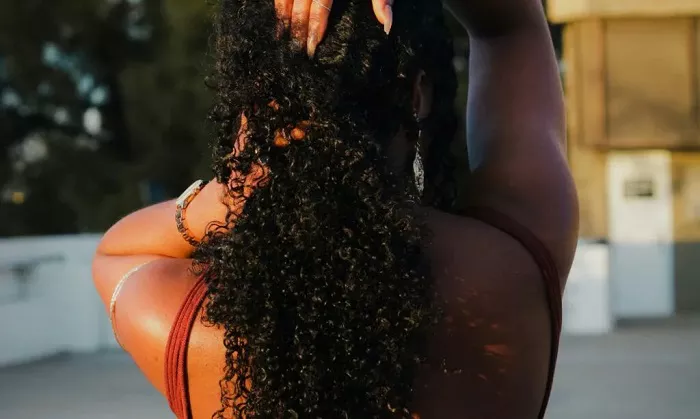Recent research has raised concerns about the potential link between hair loss and certain hair care products, specifically leave-in conditioners and anti-frizz treatments. The study focused on frontal fibrosing alopecia, a type of hair loss predominantly affecting middle-aged women, and highlighted a surprising connection to contact dermatitis caused by chemicals commonly found in these products.
Key Insights from Experts
Dr. Daniel Schlessinger, a board-certified dermatologist from Omaha, Nebraska, who co-authored the study, explains that hair loss is typically attributed to internal factors such as hormones, aging, or autoimmune diseases. However, external factors, such as the chemicals in hair care products, can also play a significant role.
Frontal fibrosing alopecia is characterized by a receding hairline and eyebrow loss, with many patients also experiencing symptoms of contact dermatitis. “During my residency, I was part of a study examining this increasingly common form of scarring hair loss, which often includes red, itchy rashes on the scalp,” Dr. Schlessinger said. He noted that many of these patients exhibited allergic reactions to a particular chemical found in conditioners and anti-frizz hair products.
The Role of Anti-Frizz Products
While Dr. Schlessinger cautions that it’s too early to definitively link anti-frizz products to hair loss, he finds it notable that the chemical used in some leave-in conditioners could be contributing to a well-known form of hair loss. “There isn’t yet a proven association, but it’s interesting that this chemical is often used in products known for their anti-frizz properties,” he added.
Although a direct link to hair loss remains unproven, the study underscores the importance of being cautious with products that cause scalp irritation. Dermatologists agree that scalp irritation or inflammation, triggered by allergens or harsh chemicals, can contribute to hair thinning and loss.
The Impact of Scalp Health on Hair Growth
Maintaining a healthy scalp is essential for optimal hair growth, according to dermatologist Michelle Henry, MD, from New York. “The scalp microbiome plays a critical role in regulating the scalp environment, which affects everything from hair growth to overall scalp health,” Dr. Henry explained.
When the scalp microbiome is disrupted, it can lead to issues like scalp folliculitis, which manifests as pimples or slow-healing scabs on the scalp. “Picking at scalp irritations or neglecting scalp health can further exacerbate this problem, leading to hair loss,” warned Marianna Blyumin-Karasik, MD, a dermatologist based in Davie, Florida.
Inflammation and Hair Loss
Dr. Bertha Baum, a dermatologist from Aventura, Florida, emphasizes the importance of scalp health for maintaining strong, healthy hair. “Scalp irritation caused by inflammatory conditions can affect the moisture and strength of the scalp, which in turn can impact hair follicle health and growth,” she said. Conditions such as dandruff or scalp dryness can irritate the skin, potentially leading to hair loss in more severe cases.
Conclusion
While it remains to be conclusively proven that anti-frizz products directly contribute to hair loss, experts agree that products that cause scalp irritation or inflammation should be avoided. A healthy scalp is essential for healthy hair growth, and individuals experiencing irritation or allergic reactions to hair care products should consider discontinuing their use. If scalp health issues persist, it is advisable to consult a dermatologist for further evaluation and guidance.
Related topics:
- ‘My Hair Was Falling Out’ – Why Lewis Hill Stepped Down as Leicestershire Captain
- How Hair Loss Affects Mental Health: A Guide for Older Adults
- Synthetic Hair Styles May Pose Health Risks, Consumer Reports Warns


